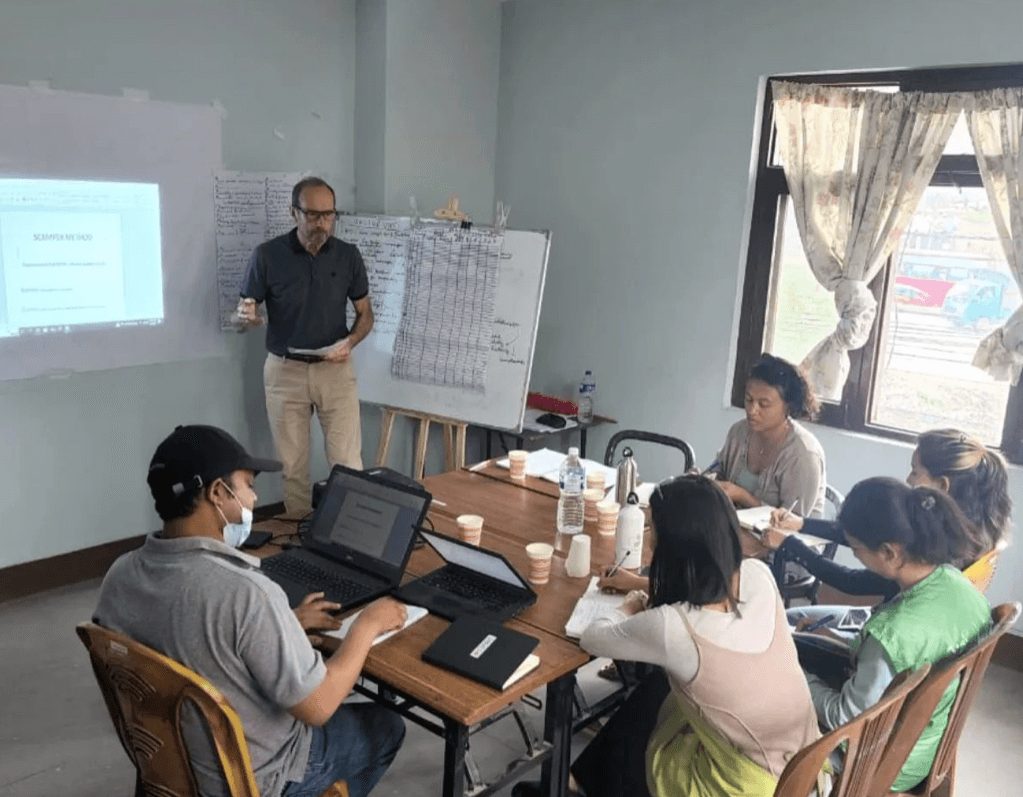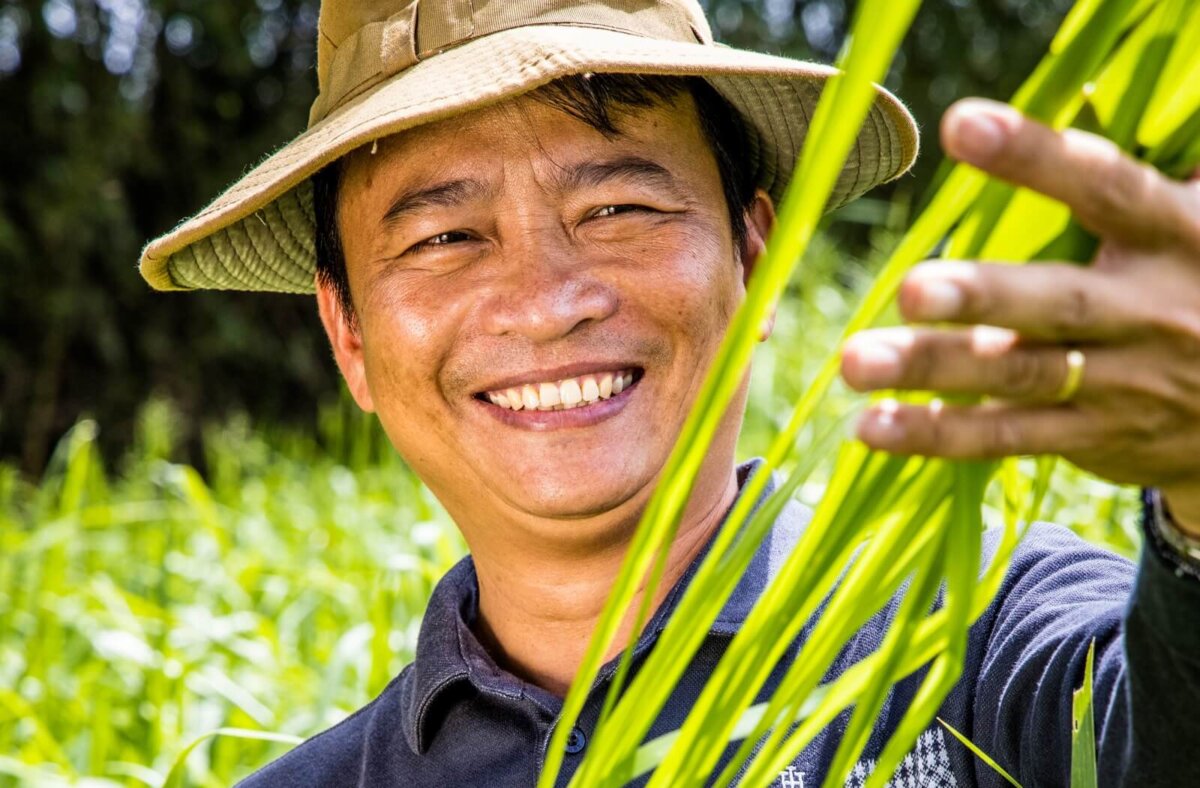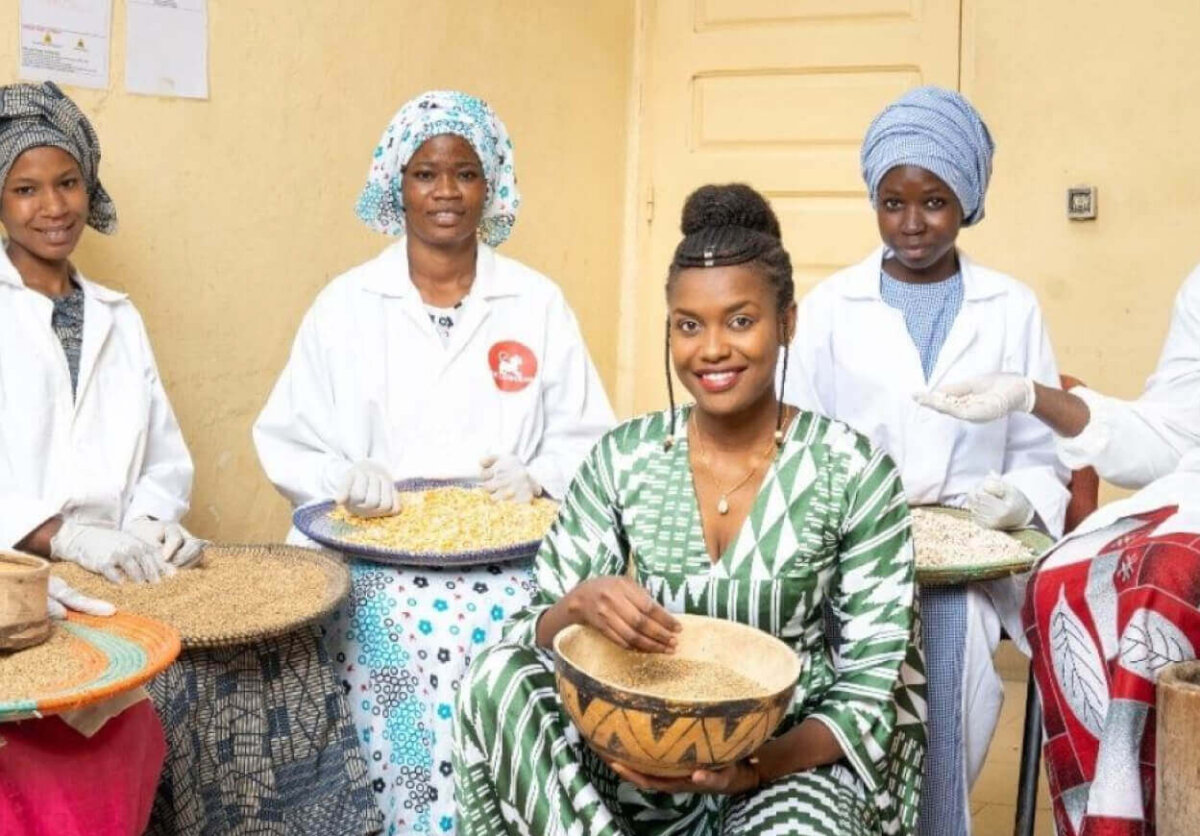- Projects
- Operating an eco-social business in Nepal

Chij Man Gurung had the vision to make a positive impact on the lives of people with low incomes in Kathmandu, Nepal. He started the Sukhawati store applying the social enterprise model, focus on selling donated secondhand clothing/items providing affordable options for those in need and giving jobs to people with special needs. Sukhawati wants to strengthen their current stores and open new branches in other cities. They asked PUM to brainstorm with them on how to realise this growth, with even more positive impact on the economy, society, and environment.
Sukhawati’s activities include first of all selling donated clothing/items through three stores in Kathmandu and Lalitpur. Clothes that cannot be sold are upcycled or recycled. Fabric from collected sari’s is transformed into products like shopping bags, curtains and organisers, and leftover materials are used as stuffing for mattresses and cushions. The money coming in, is partly used to pay physically and mentally disabled shop staff. What is left is used to strengthen underprivileged people in the community, for example orphanage children, senior citizens, students from remote areas or who became orphans after the 2015 earthquakes.

Expanding the concept
Founder Chij Man dreamed of expanding the concept to other locations. However, he faced financial constraints, and the existing stores relied heavily on his personal dedication and the support of volunteers. Juna Shrestha, one of these volunteers, was impressed by Chij Man’s work and got inspired to extend Sukhawati’s impact to her own city of Pokhara. She submitted an application to PUM asking for input on how to strengthen the stores in Kathmandu and roll out the concept including a store in Pokhara.
Challenges ahead
Chij Man: “We adopt the 3P model, which stands for People, Planet, and Profit. We use this as a framework in our stores to guide our operations and decision-making processes. It emphasises the importance of balancing social, environmental, and economic considerations in achieving long-term sustainability and impact.” Sukhawati experienced steady growth since it started, both in terms of donated clothing and sales. However, the concept faced challenges that needed attention. PUM expert Arnold Toppen worked together with Juna and Chiij Man. Arnold: “After making a SWOT analysis, we drafted a comprehensive action plan. This made clear that the following issues need to be handled: the secondhand concept is beneficial but does not match with Nepalese culture; a new shop in Pokhara is scheduled, but it probably needs a different marketing approach; lack of money is hindering expansion.”
Remodel and repurpose
To address these challenges, Arnold recommended to clearly determine a mission and vision, develop different strategies in various areas, do marketing research in and outside Kathmandu, and to use storytelling. “Storytelling is a powerful tool, which can influence the behavior of potential clients. Sukhawati should not only explain the collecting and selling of secondhand clothing, but also emphasize the values and impact behind this formula. Narratives could highlight the job opportunities for underprivileged women and education for needy children and could raise awareness for the positive effects on the environments.”
After working together with Arnold, Sukhawati is now able to take the necessary steps to improve their concept. Recommendations to enhance this process include developing the website, expanding social media presence and further training of staff. Arnold committed to maintain contact with Sukhawati, while Juna and Chij Man ensured regular reporting on progress. In the near future, PUM can probably play a role in providing management training and further developing the recycling component.




